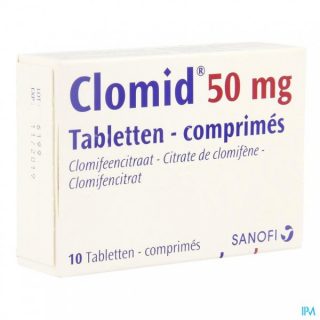What is the proper dosage?
Clomiphene, another name of Clomid, should be taken according to your primary care provider’s advice. The medication is consumed orally for better effects, while the exact dosage will depend on your health condition and therapy response. Generally, Clomid is not ideal for long-term treatments, with six cycles being the maximum intake that will not impose threats to your body.
A 50 mg Clomid tablet is prescribed daily for five days in most instances. The drug should be taken near the fifth day of menstruation. If ovulation does not lead to pregnancy, two additional runs can be followed in the coming two months. If Clomid does not result in ovulation, the second course can be double (100 mg daily). Still, the manufacturer of Clomid suggests sticking to the above, despite several success stories after taking 200 mg over ten-day courses.
Women taking Clomid are also undergoing body temperature and ovulation tests. Further, your doctor will also highlight the ideal times to engage in sexual intercourse, which alongside Clomid, can result in pregnancy.
Clomid side effects and considerations
Your doctor will check your medical history, any other medications, and your age to decide how to proceed with the administration of Clomid. In most instances, a single course of 50 mg will result in pregnancy.
It is essential to tell your primary care physician if you have any of the following: Enlarged ovaries or ovarian cysts, vaginal bleeding (outside the menstrual cycle), urinary infections, gland problems, brain tumors, or high-fat levels in the blood.
Clomid can lead to certain side effects, such as dizziness and vision impairment, even outside the above contraindications. When taking this medication, it is best to avoid activities that could result in accidents and substance abuse that could worsen the adverse effects. Stomach pain, nausea, weight gain, urination complications, feelings of short breath, pelvic pain, and heavy vaginal bleeding can also occur in women using Clomid.
If any of the above persists, you should inform your doctor to consider an alternative course of action. Do not stop taking Clomid on your own, nor change your dosage. Lastly, it is also important to note that Clomiphene usually results in multiple births, with twins and triplets being quite common.
| substance active | Clomid |
|---|---|
| Amount of substance, mg | 50 |
| Formulaire de discharge | compressed |
| 1 compressed, mg | 50 |
| Plaquettes thermoformed by package, pieces | 2 |
| manufacturer | Products pharmaceutiques Beligas |
| volume de commande | 1 pack (2 bulls), 1 tray 25 compresses |







Reviews
There are no reviews yet.